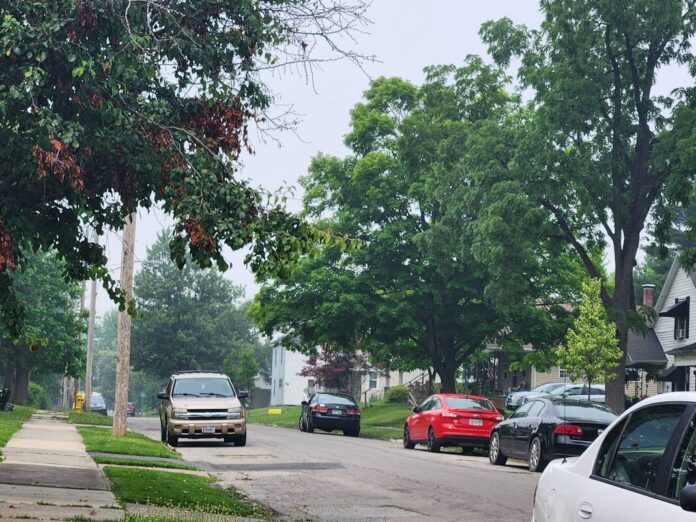LIMA — Lima’s air quality is unhealthy today as wildfire smoke from Canada drifts back into the Midwest.
The city’s air quality index hit 180, an unhealthy rating approaching very unhealthy levels of pollution, as of 2 p.m. Wednesday, according to the Environmental Protection Agency.
The Ohio EPA issued a statewide air quality alert effective through midnight Wednesday as air quality is expected to remain unhealthy for sensitive groups.
People with heart or lung conditions like asthma or COPD may have trouble breathing outdoors Wednesday. Healthy adults should limit outdoor activities too until air quality improves.
The poor air quality is due to unhealthy levels of particulate matter and fine particulate matter—inhalable pollutants that enter the lungs, airways and bloodstream, making it hard to breathe—in the air as wildfire smoke from Canada lingers in the Midwest.
“Listen to your body to make sure that you’re not putting too much stress on yourself, because these particles are really small. They get deep into the lungs,” Allen County Health Commissioner Brandon Fischer said.
Exposure to particle pollution can cause shortness of breath, heart attacks and other health issues, particularly in people with underlying heart or lung disease, older adults with undiagnosed disease, pregnant women and children, whose lungs are still growing and occupy a larger portion of their body, Fischer said.
How to stay healthy
• Move activities indoors until air quality improves, or stay hydrated and take breaks if outdoor activities are unavoidable, Fischer said.
• Check window air conditioning units to ensure a filter is installed to keep polluted air out. If it’s cool outside, Fischer recommends keeping window air conditioners turned off.
• Use an indoor air purifier and avoid activities that may stir up dust and other irritants, like vacuuming, burning candles or cooking with propane or gas stoves, Fischer said.
• Turn on the recirculation feature while driving with the AC on to filter particle pollution out of the vehicle, Fischer said.
• If wearing a mask, Fischer recommends using a well-fitting n95 rather than a cloth or surgical mask so particles don’t slip through air gaps between the mask and face.
• Pay attention to air quality warnings. People with underlying heart or lung disease should take extra precautions when AQI exceeds 100, otherwise known as “unhealthy for sensitive groups” or a “Code Orange” warning.
Everyone should take some precautions when AQI hits 151, an unhealthy or “Code Red” alert, and should take extra care when AQI surpasses 200 — very unhealthy levels of particle pollution that can cause everything from coughing and shortness of breath to heart attacks and chronic lung damage. An AQI of 301 or higher is hazardous.







